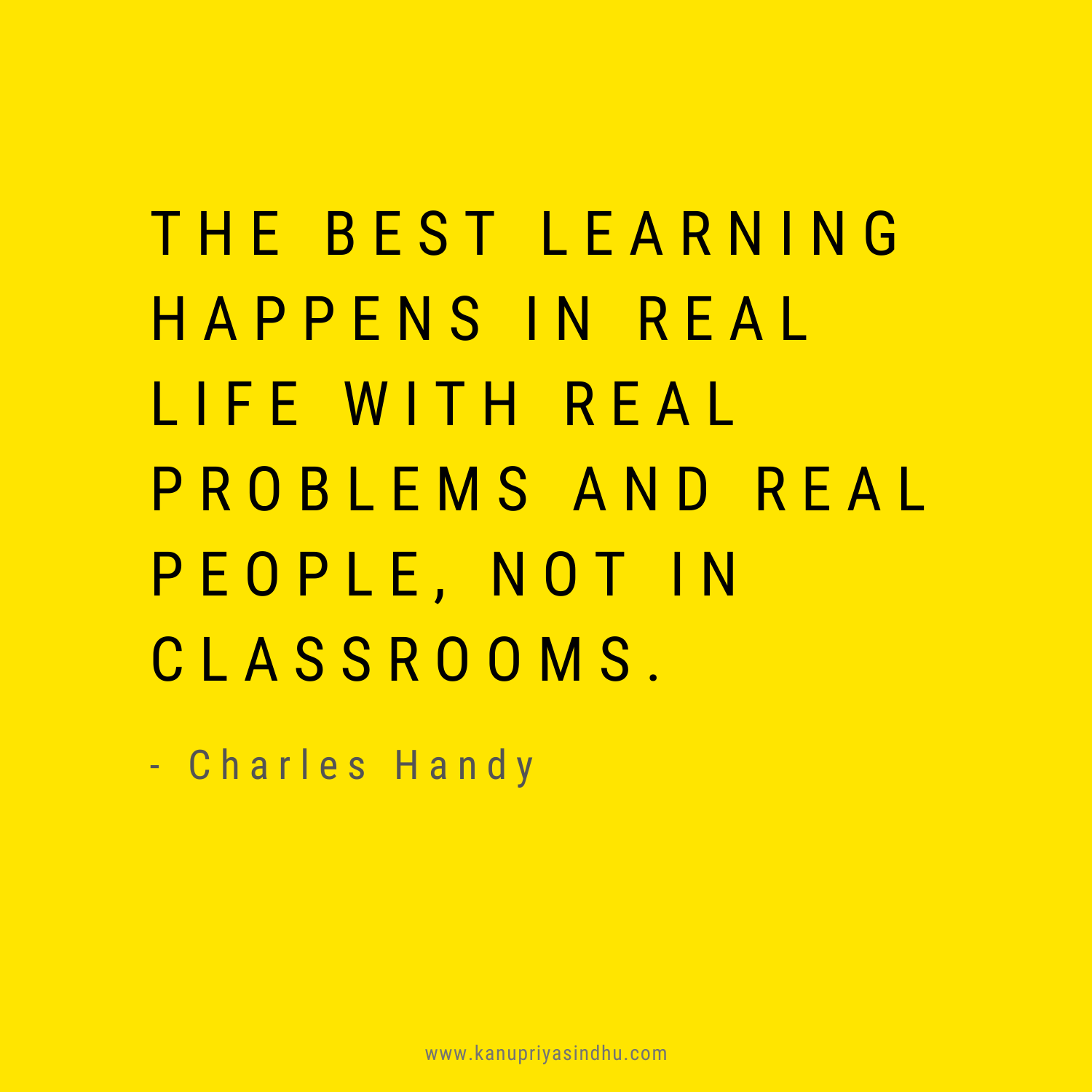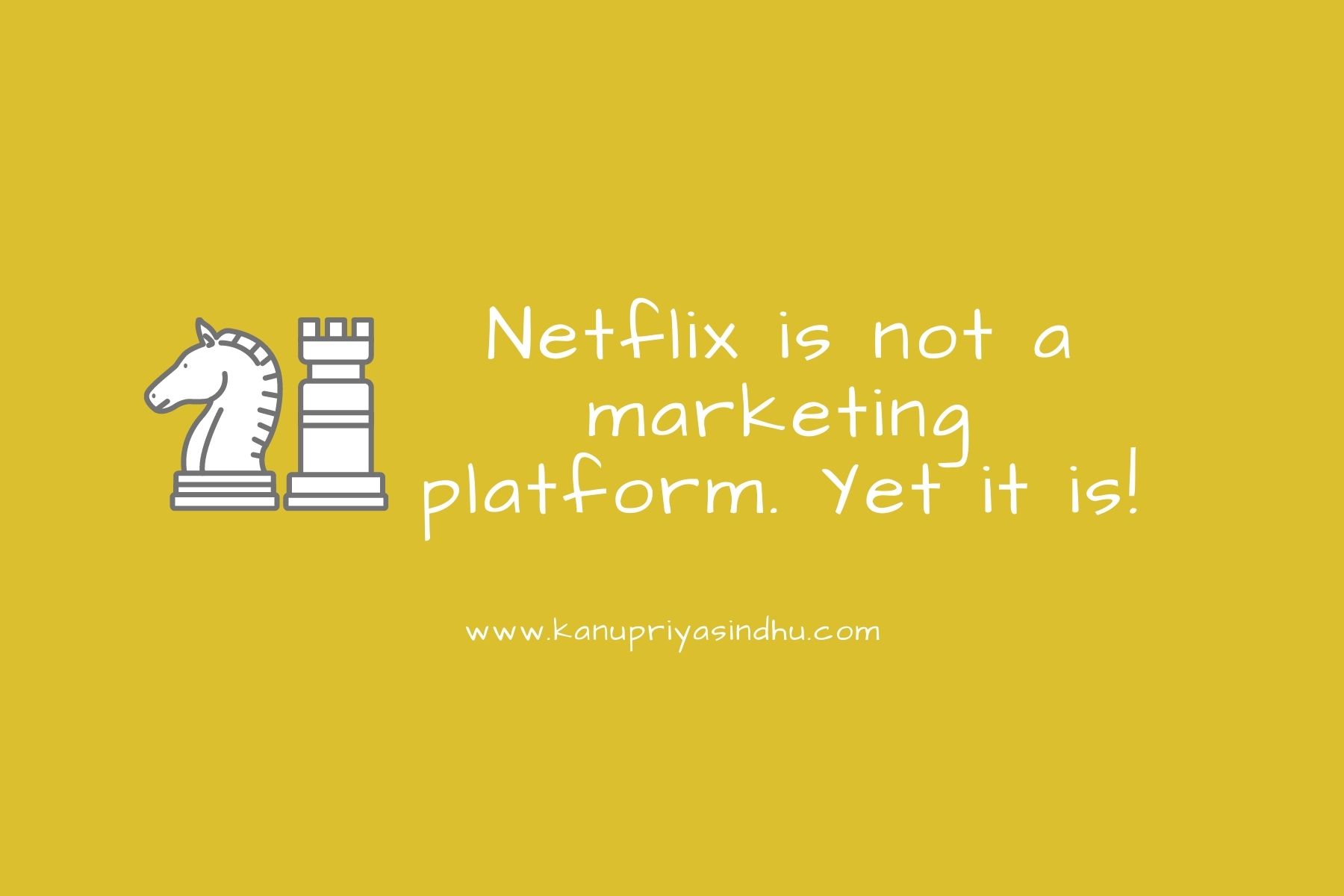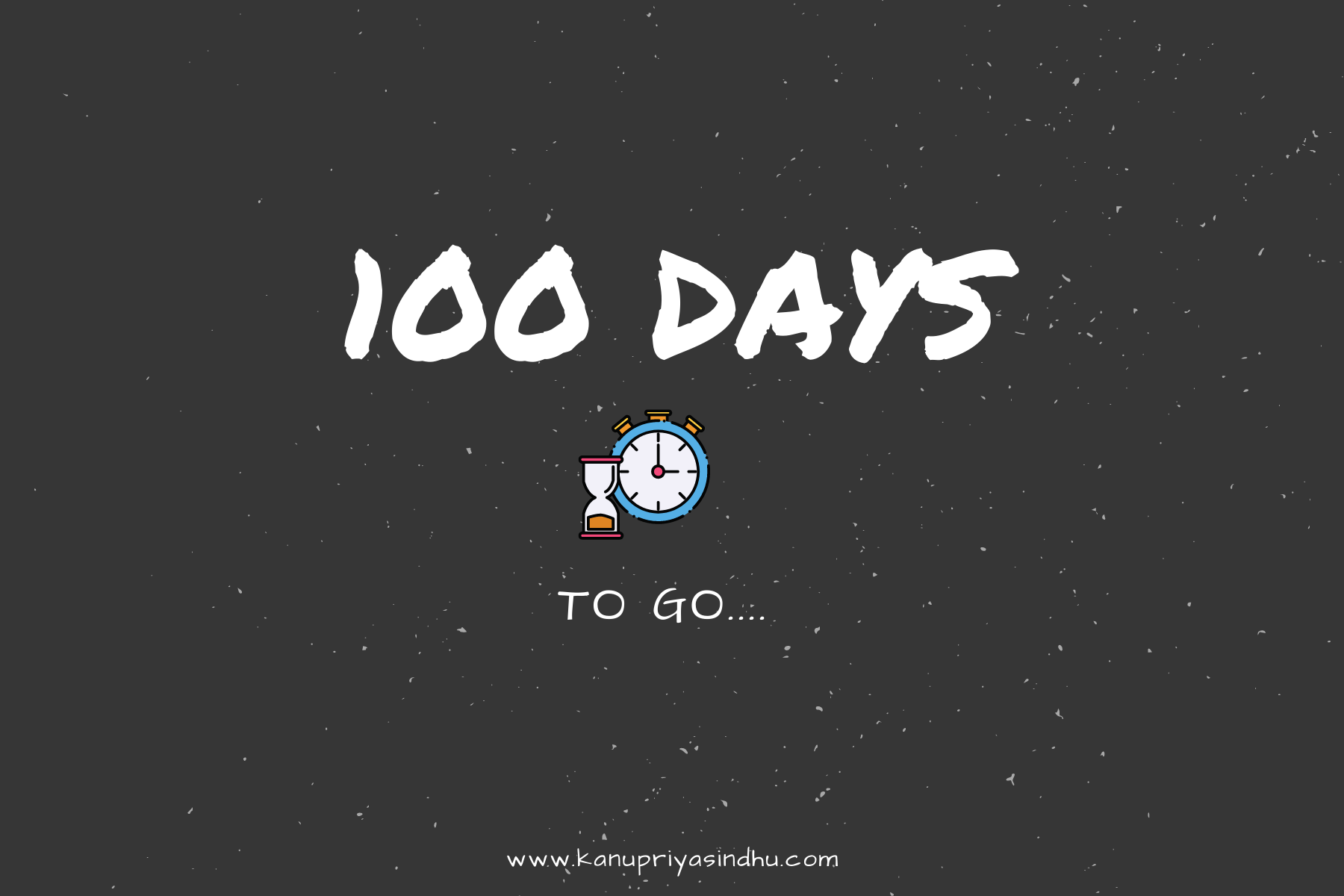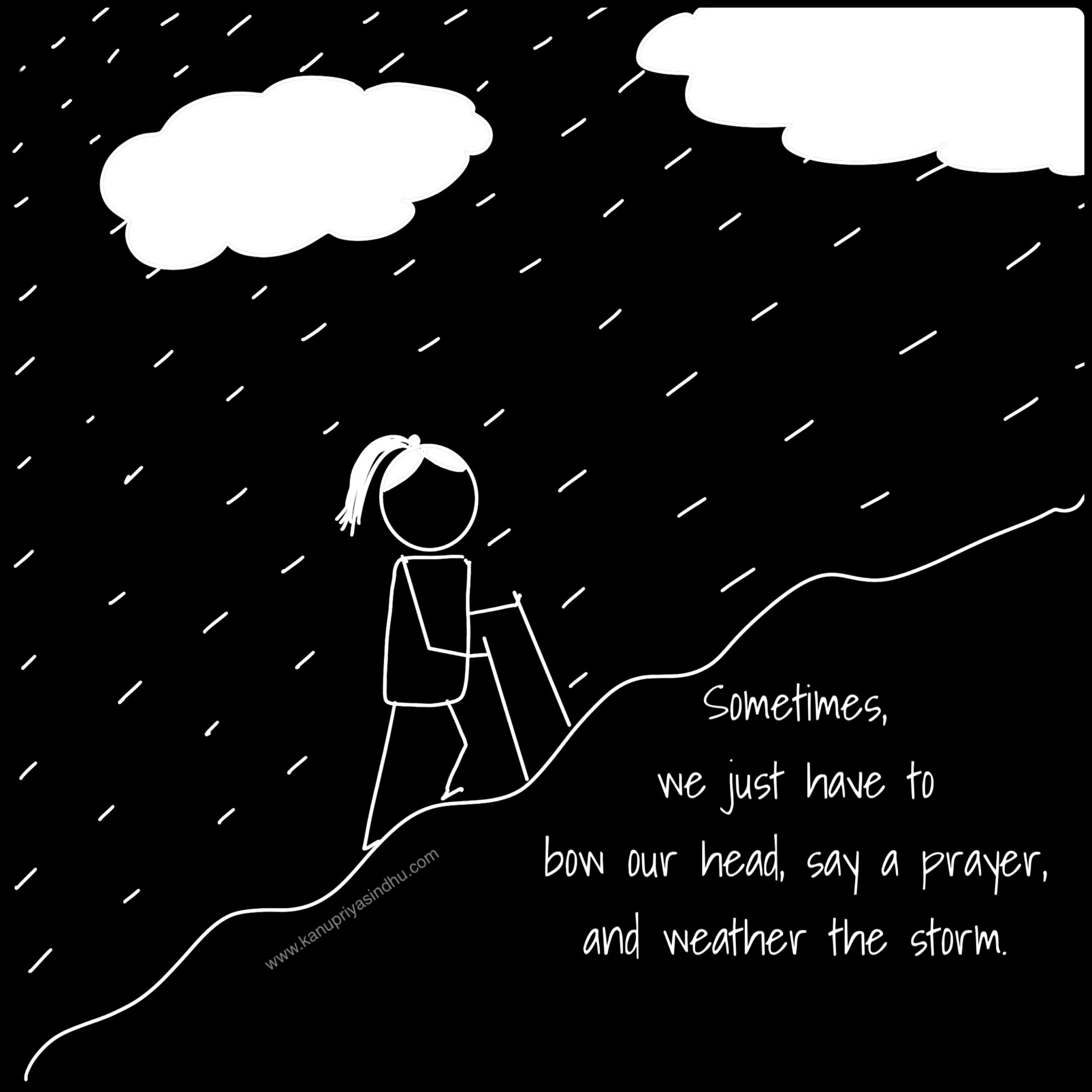As part of one of my recent projects, last quarter I got a chance to interact with some awesome entrepreneurs from Central Europe. While the discussions were primarily around pivoting during the pandemic, there were many other learnings for me about entrepreneurship and life in general. Sometimes candid conversations give us many more insights than planned discussions.
As Charles Handy said, The best learning happens in real life with real problems and real people, not in classrooms.
Summarizing here the five key takeaways that got repeated by all of them. And this is not the first time that I have heard these. I have worked with some amazing founders in the past across India and the US, my recent project here reminded me of the lessons learned with them. We change geography, we change the industry but when it comes to core lessons and challenges, perhaps they remain the same.
1.The purpose matters
Before we start up, it’s important to understand “our” purpose of doing it. This is beyond the market size, opportunity, or the glamour associated with the word “entrepreneurship” these days. This is about the inner drive and “our” reasons to be in it. As Sari Volom, founder of Photon says –
As long as we can answer, “why am I in it”, everything else gets figured out along the way, and we’re ready to face any crisis.
2. Plan B is important.
Focus is good, the defined path is a must but be prepared for obstacles and failures. Plan B is very important and the recent pandemic crisis has reminded us this brutally once again. Most of the entrepreneurs that I interacted with agreed to this, be it Kata Ludvig from Flight Refund who had to change her whole business plan to deal with flight cancelations or Edit Ditte Szabófrom Kider App who had to train all her vendors to adapt to the new world of virtual events for kids.
Sometimes the best way to survive is to let go of the plan, and pivot as required.
3. People first, always.
There are no second thoughts about it. No one has been able to do it all alone. During the lockdown, many of us have been struggling to manage work and personal priorities at the same time. Some had homeschooling needs of their children and some had sick parents to be taken care of. Just being empathetic to the situation and having simple policy changes like flexihours helped many of us sail through this phase. As Kata Ludvigfrom Flight Refund or Bea Nagy from Little Minds (both having women as the majority of their workforce) rightly said,
Invest in the right people, give them the required support, and see the miracles that a motivated team can bring.
4. Just do it.
Time is money, just do it. The COVID crisis hit businesses badly and made us think of solutions that we didn’t have in our plan until a few weeks back. But when the crisis happened, many of us introduced new offerings much faster than imagined. The newly launched startup briefly.work which is otherwise a marketplace to connect companies with freelancers understood the challenges of small businesses and launched a survival kit for SMEs. It was instantly liked by all.
Sometimes it’s better to just go ahead, and bring out the solution instead of thinking to build a “perfect” product.
5. Make mental health a priority.
Work-life balance, pandemic, layoff, global crisis, depression – there has been a deluge of words like these in the last few months. The path of entrepreneurship has never been easy but the last few months have been tough in unimaginable ways for many. We all know the importance of mental health but still many of us, especially the entrepreneurs need a reminder about making it a priority amongst hundreds of other things that they need to do on a daily basis. Jelena Langer, the founder of Longevity Project (a startup that helps people aim for healthy & purposeful life), saw an upsurge in requirements for mental health talks in the last few months.
Mental health matters and we need to make it a priority, not just for our wellbeing but in the interest of our employees and family members too.
A closer look at these and I feel these are not just entrepreneurship lessons but lessons for life. While we know of many things but it’s often a crisis or transition of any kind that reminds us of what matters the most!
As we wrap up this project now, I would like to thank Jelena Langer from Longevity Project, Kata Ludvig from Flight Refund, Bea Nagy from Little Minds, Edit Ditte Szabó from Kider App, Réka Bittera & Csenge Tassonyi from Briefly.work, Sári Volom from Photon, and Mechthild von Knobelsdorff from Hungarian For Expats for their time and insights. It’s been amazing to interact with these inspiring women entrepreneurs and create insightful stories for the startup ecosystem in Budapest.
May the ecosystem thrive and shine!






